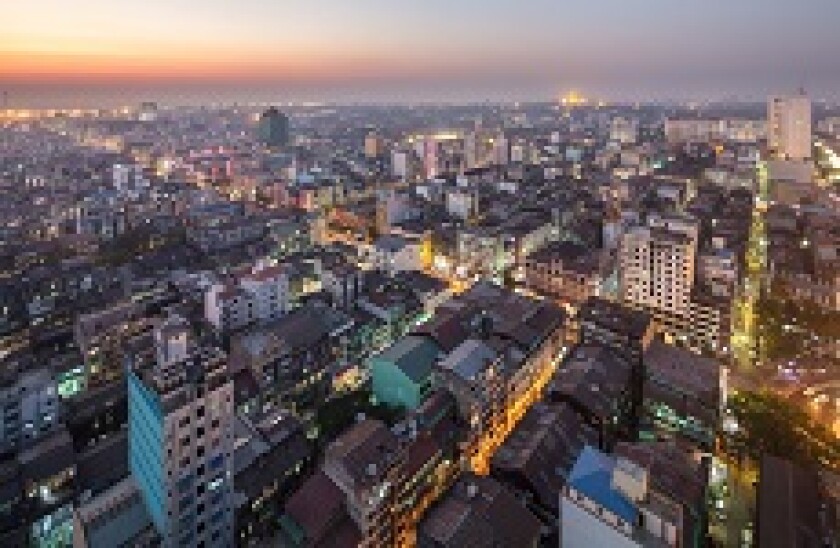Myanmar Thilawa SEZ started trading on the Yangon Stock Exchange last Friday at Mk40,000 ($34.08) a share. By the market’s close on Monday, that price had risen to Mk60,000 — a 50% jump.
The stock is not the only strong performer. The country’s debut listed company, First Myanmar Investment, went live in March at Mk26,000 a share and ended the month at Mk41,000. But the rapid rise did not last very long. In April, the stock dropped to Mk30,000 and by mid-May it had slid below the IPO price, according to data on the YSX website.
The steep declines were driven by a number of factors. In both cases, the companies’ shares were already trading on the country’s over-the-counter market, where they were valued at considerably higher levels than their opening prices on the YSX.
Myanmar Thilawa, for instance, was trading at Mk70,000 on the OTC market in the weeks preceding its float. Admittedly, its inflated stock price was largely driven by the excitement around a company switching to a stock exchange listing from the OTC. But the fact that the company opted to sell its stock at a starting price of as low as Mk40,000 is a clear sign to investors that market factors are not really playing a role in determining pricing at the time of listing.
Sure, a juicy discount when floating is attractive for investors but companies need to be a bit more realistic when pricing their transactions. The fact that a YSX listing will lead to more liquidity in the stock is a reason for investors to pay a premium over the OTC pricing, say market watchers.
They certainly have a point. By listing at nearly half the price they were trading at on the OTC market, Myanmar Thilawa SEZ and FMI were effectively generating artificial growth in their stock prices on the YSX. And the ones to suffer once the excitement wore off were shareholders.
Myanmar is not alone in this situation. Some of its neighbouring markets have also faced problems where low pricing at the time of listing ended up backfiring in the long run. A case in point is the IPO on the Lao Securities Exchange of EDL-Generation Public Co in January 2011. The stock price rose by nearly 90% in a span of a few weeks after its listing — only to never reach those levels again.
Phnom Penh Water Supply Authority, the first company to list in Cambodia, suffered a similar fate too. It jumped about 10% from its IPO price in April 2012 and has since slumped well below the issue price. The fall, say market watchers, was driven by issuers’ tendency to sell their stock at very cheap levels.
But Myanmar can take comfort in the fact it has more listings on the way. As an increasing number of companies float on the YSX it will lose its novelty value and earn the characteristics of a genuine stock exchange. There were six strong candidates for the debut position on Myanmar’s bourse and all of them are expected to float, with at least two more slated for this year. In comparison, Laos and Cambodia only have four and five listings, respectively, so far.
If Myanmar wants to avoid being a market where stocks are perennially at a low point, it should push upcoming issuers to pay more attention to investor feedback when determining their IPO terms. That way, the bourse can move on from crashing and burning to something more sustainable.

